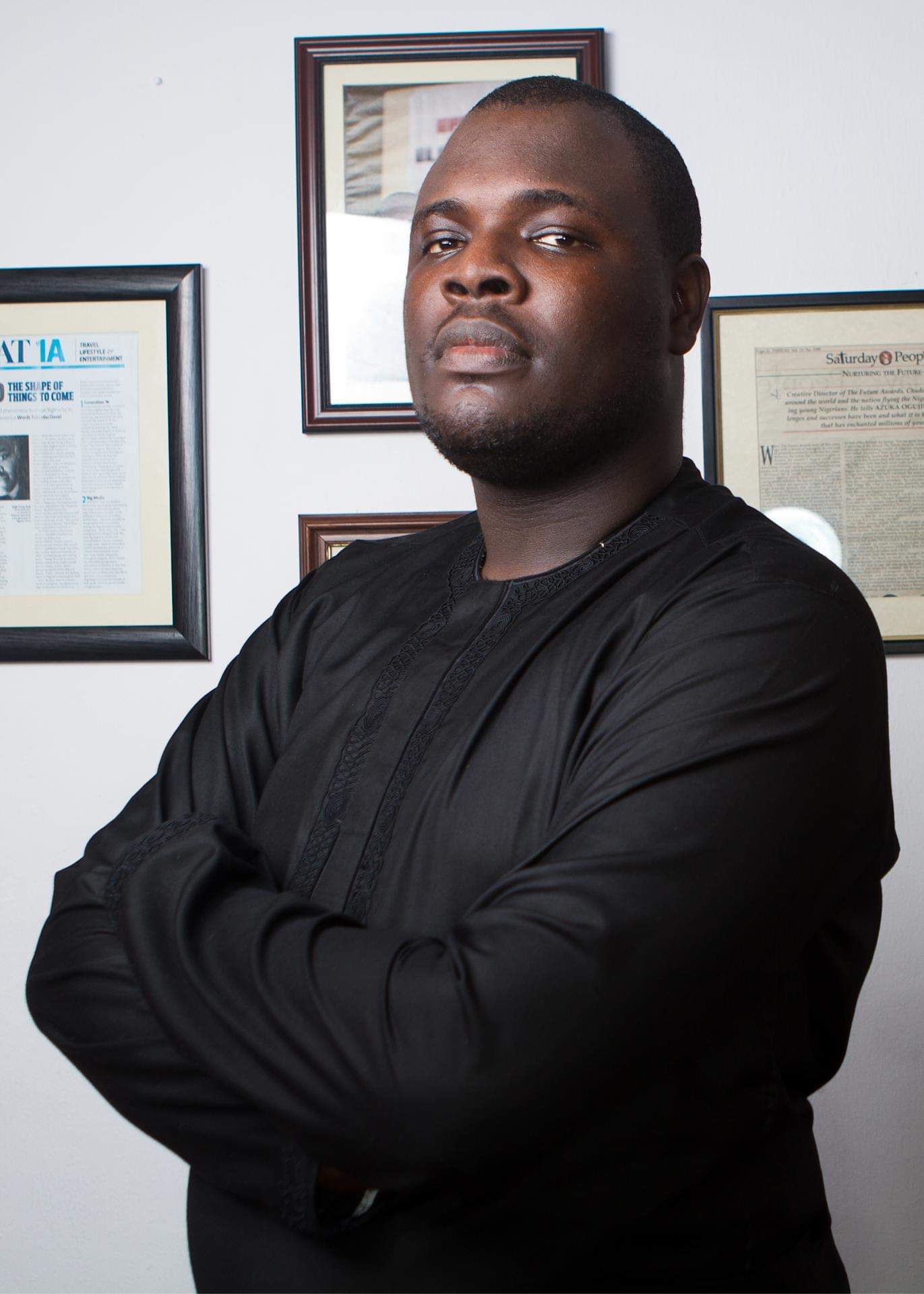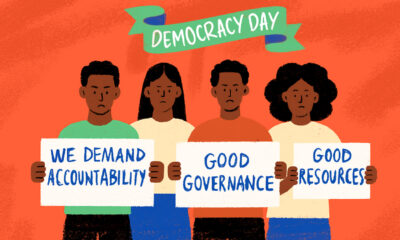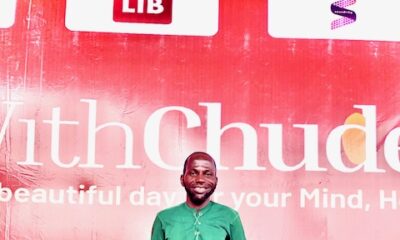Features
Chude Jideonwo’s 5 Lessons at 35: You Don’t Need Confidence to Cross the Street
 If there was anything I learned just after I turned 30 in 2015, and then 2016, it was the danger of certainty.
If there was anything I learned just after I turned 30 in 2015, and then 2016, it was the danger of certainty.
In 2015, I often made the common sense statement that no one, no matter how passionately one believed in a person, could predict what they would do when elected into office. But even then, I believed that the team Muhammadu Buhari was bringing into office as Nigerian president would transform the country. To cut that story short, 5 years after, I don’t believe that has happened.
In 2016, my political consulting instincts led me to say in a private conversation that a woman I adored so much that I wanted her to win over Barack Obama in 2008, was likely to lose the United States presidency because of the campaign she was running. But I couldn’t possibly listen to myself. All the American pollsters, the star political consultants, the pro-politicians, and the almighty pundits were certain that Hillary Clinton was going to win in a blow out. No group of people on earth had ever been more certain. Four years later, we now know that they were certainly wrong.
Those two events shook my worldview, for good – in ways that I am exceedingly grateful for. There was a time when certainty was important to me. Whatever I knew or thought I knew, I had to know for certain. I needed to know that I was right. I needed to win the argument, whatever it was. Because I, like many people, had a very definite idea of what the world was, and what it should be – and I was invested in being proven right. I couldn’t feel secure if my worldview was wrong.
So 2015 and 2016 were very uncomfortable years for me. And the gift of that discomfort was clarity.
I came to learn, with stunning clarity, that I could be committed to an idea, invest all that I am in it, do it for all the right reasons, give all I am to it, defend it with my core, go to war on it … and still be passionately wrong.
There are plenty in the world as certain today as I was then. Whether the subject is capitalism or socialism, income inequality or tax breaks, this politician or that one, abortion rights or religious freedom, belief in God or the existence of hell, open borders or nationalism – the world remains seized in a war over who is more certain, who is more right, who knows better.
I came out of 2016 realising that certainty is as dangerous as it is unnecessary.
“You don’t need confidence to cross a street,” one of my favourite spiritual teachers, India’s Sadhguru once said. “All you need is to see clearly.”
I still hold many of the same views I have always held about the world: I am for a woman’s right to decide over her body, I am pro the variety of sexual and gender identities that have emerged over the past few decades, I still think the same things about immigration, I retain a belief in God. I still have many ideas and beliefs I am passionate about. But I hold my views much more lightly.
I am much more accepting, welcoming even, of the idea that I could be wrong. The potential of being wrong brings with it the excitement of possibilities, of creativity, of learning and of growing, of being stretched in ways I couldn’t previously have conceived of. Of being open to all the vistas that certainty can close one off to.
“I am pro-choice,” I said to the lover recently. “I have been pro-choice since I was a teenager. But I am also open to the possibility that I could be wrong, that we could all be wrong, despite the culture, the world’s leading institutions and my favourite people agreeing with me. I have made a decision on what I believe on this, but I always remember that I could be wrong.”
“That’s about playing the devil’s advocate, right?”
“No,” I responded. “Not at all. It’s just an acknowledgement of fact: I could be wrong. I don’t think I am, because this has come after careful thought. But it is important to me to remember that I could be wrong – and to be at peace with that possibility.”
Being less needy of certainty has also led to me holding very few opinions. Actually, I believe I am in a race to hold as few opinions as I need to about the world.
Take for instance, the late Kobe Bryant.
I didn’t know much about him apart from his name. I still don’t. But after he passed, local social media was awash with people mourning. So recently, a friend asked me: “What did you think about that?”
I replied: “Nothing.”
My heart went out to those who loved him and whom he left behind, but I didn’t have to have an opinion about him, his life, his legacy, his choices, or the genuineness of those who were mourning him loudly and publicly. I could reserve my opinions, and the emotional energy that often powers them, for things that genuinely mattered to me.
For some reason, this response wasn’t good enough for my dear friend – who kept pressing. I understood the impulse, but I still refused to form a gratuitous opinion.
“I never allow myself to hold an opinion on anything that I don’t know the other side’s argument better than they do,” the investor Charlie Munger has said many times, and I find those words to be exceedingly wise.
New evidence, new thinking, new research, new people can always show us to be wrong. Just as it has those who were certain before us. Yes, we must make choices and decisions today, else we freeze in a space of analysis. But I have learnt to hold space for all the other possibilities that can exist at the same time. We could be on the right side of animal rights today, and on the wrong side of plant rights tomorrow.
“Another thing I think should be avoided is extremely intense ideology because it cabbages up one’s mind,” Munger also said in a 2007 commencement speech. “When you’re young it’s easy to drift into loyalties and when you announce that you’re a loyal member and you start shouting the orthodox ideology out, what you’re doing is pounding it in, pounding it in, and you’re gradually ruining your mind.”
It makes sense to be open rather than closed off. To be, as James the brother of Jesus admonished, “quick to listen, slow to speak and slow to become angry.” To seek the light of clarity rather than the heat of certainty.
“If you observe people around you,” The Seven Spiritual Laws of Success teaches, “you’ll see that they spend ninety-nine percent of their time defending their points of view. If you just relinquish the need to defend your point of view, you will in that relinquishment gain access to enormous amounts of energy that have been previously wasted.
“You don’t want to stand rigid like a tall oak that cracks and collapses in the storm. Instead you want to be flexible, like a reed that bend with the storm and survives.”
That’s a movement I choose to get behind, every day.
*Jideonwo is co-founder of media group, RED and human flourishing company, Joy, Inc. To follow his daily blog and newsletter where he shares the lessons he learns every day, sign up on withchude.com.




















